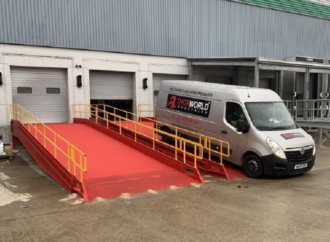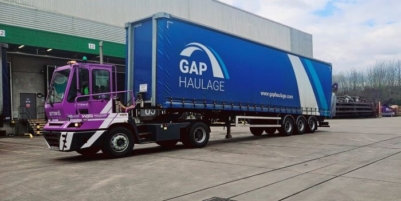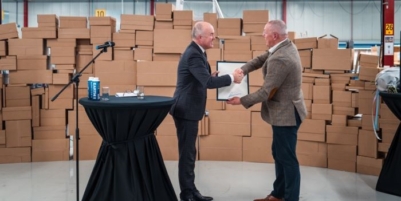-
Nutrivend selects Forterro’s Orderwise to support online expansion and streamline operations - April 11, 2025
-
ARROWXL LAUNCHES AMBITIOUS ZERO WASTE ROADMAP - April 8, 2025
-
THE BCMPA’S NEW CAMPAIGN DRIVES OUTSOURCING SUCCESS IN Q1 - April 7, 2025
-
BLACKOUT TECHNOLOGIES TARGETS TELEMATICS-INTEGRATED MOBILE DEVICE BLOCKING TO COMBAT SMARTPHONE DISTRACTION - April 1, 2025
-
Sparck Technologies awarded Royal designation - March 27, 2025
-
OpenADR Alliance announces first OpenADR 3.0 certified products with EVoke Systems, E.ON Energy and Universal Devices - March 25, 2025
-
Growing fulfilment and contract packer appoints new Managing Director - March 25, 2025
-
When is it time to invest in a WMS? Understanding the key trigger points - March 25, 2025
-
eCapital helps Vantage Recruitment on its journey to financial success - March 24, 2025
-
Hugo Beck Celebrates 70 Years of Packaging Innovation with Open House Events - March 20, 2025
Given the rapid growth in demand for same-day and final mile delivery, the changing face of logistics requires new, safe and efficient ways to load and unload goods into smaller vehicles. According to loading and unloading specialist Thorworld Industries, the answer is simple: van ramps.
The company’s Managing Director, John Meale, says: “Even as recently as three years ago, most warehouses and distribution centres were built to accommodate container trucks or large trailers. Faced with a rapid shift in consumer habit, distribution centres are having to adapt to ensure delivery to the final consumer using small vans and passenger cars.”
The COVID-19 pandemic, and the struggles of high street retailers, have facilitated huge demand for home delivery. Against this, rising energy, fuel and labour costs present logistics managers with a conundrum: how to service the changing face of their fleets in a productive and cost-efficient way.
Thorworld Industries has developed a suite of ramps developed specifically to meet this need. Van ramps are wider and longer than the company’s standard size (meant primarily for forklift trucks) and so allow vans to safely reverse from ground level to dock height.
Different load capacities, widths, tilt lengths and levelling/platform lengths can be provided depending on the environment. Thorworld’s van ramps are manufactured up to 24m long. Safety is further assured through the use of special anti-skid surfaces and safety rails.
Like the company’s modular loading docks – another popular solution for greater logistics flexibility – specialised van ramps do not require warehouse modifications. They can also support the weight of electric vans, which are becoming increasingly popular amid rising fuel prices.
Ramps can be designed to be easily docked so that they are flush or below the dock to align the floor of the vehicle with the loading dock. In addition to fixed ramps, customers can choose mobile ramps for environments where portability and flexibility are desired.
“Our team of qualified engineers has built up considerable experience in evolving loading ramp designs to suit particular circumstances,” confirms John Meale. “In the case of van ramps, the solution is the perfect solution to support customers through a period of rapid, and probably irreversible, change.
“By using van ramps, companies can maintain their supply chain, be adaptable to different delivery vehicle types, and drive greater efficiencies cost-effectively.”
































